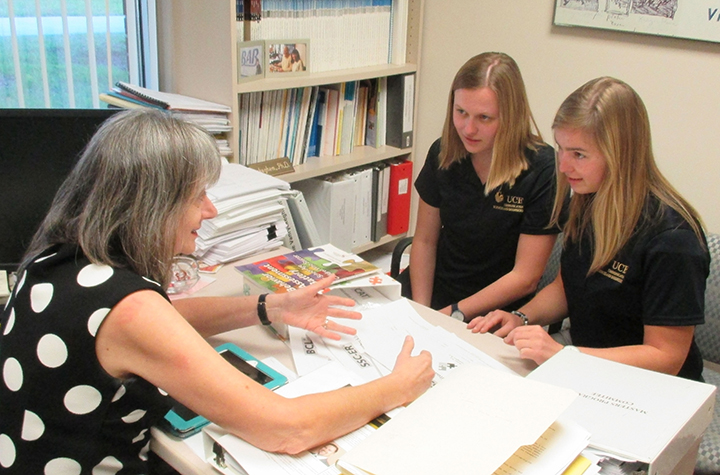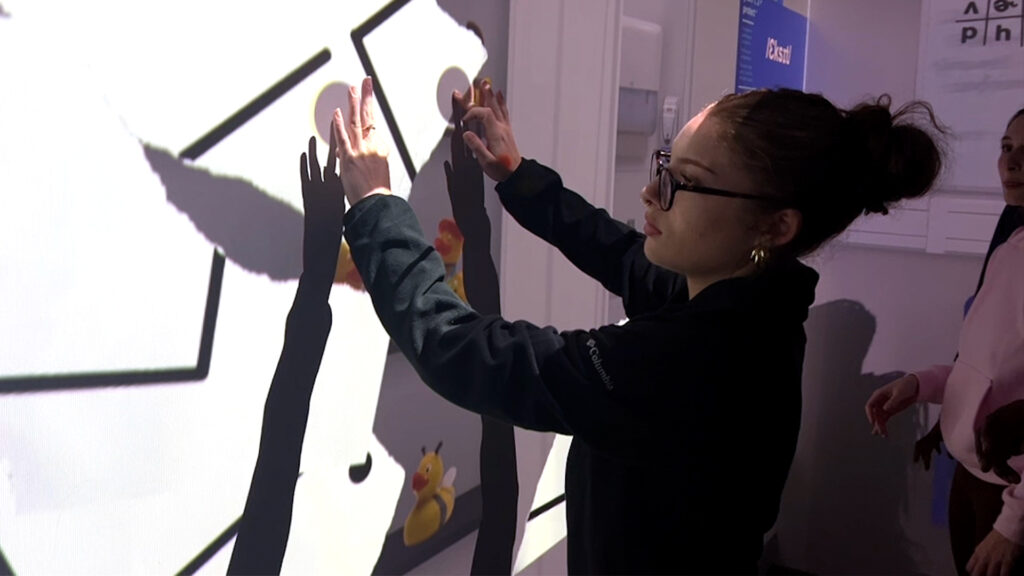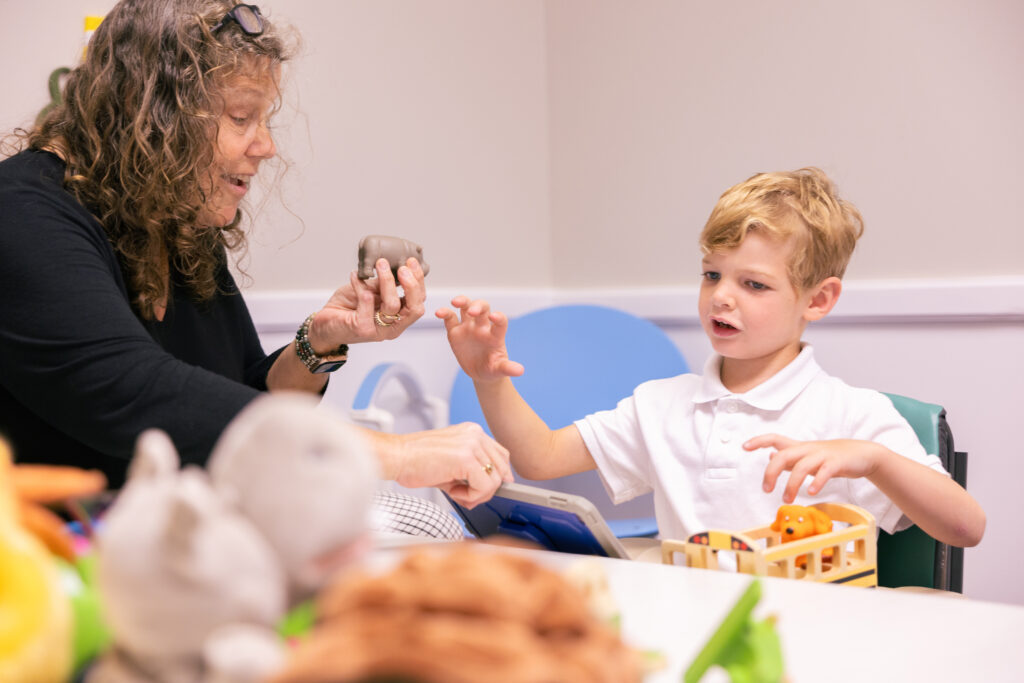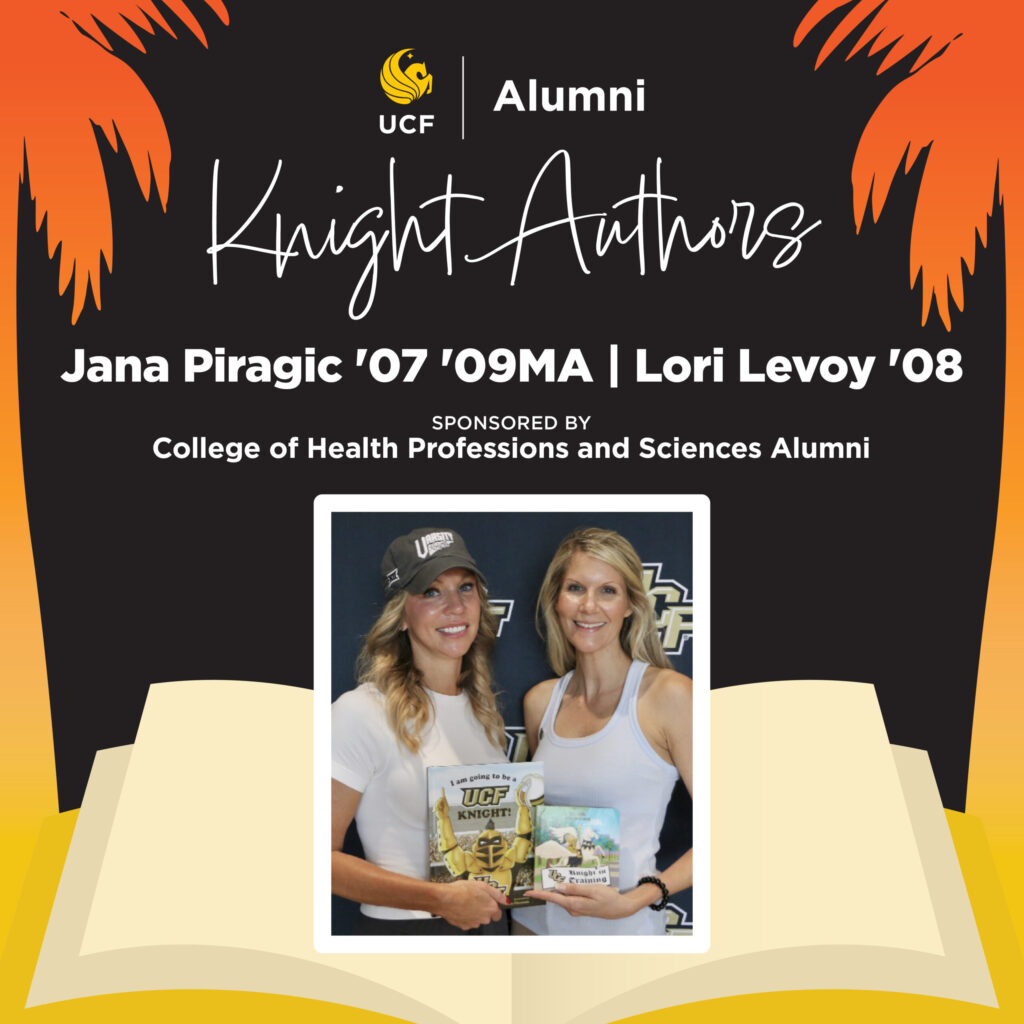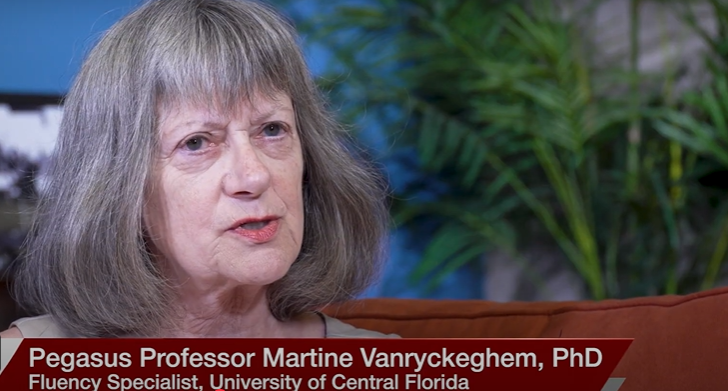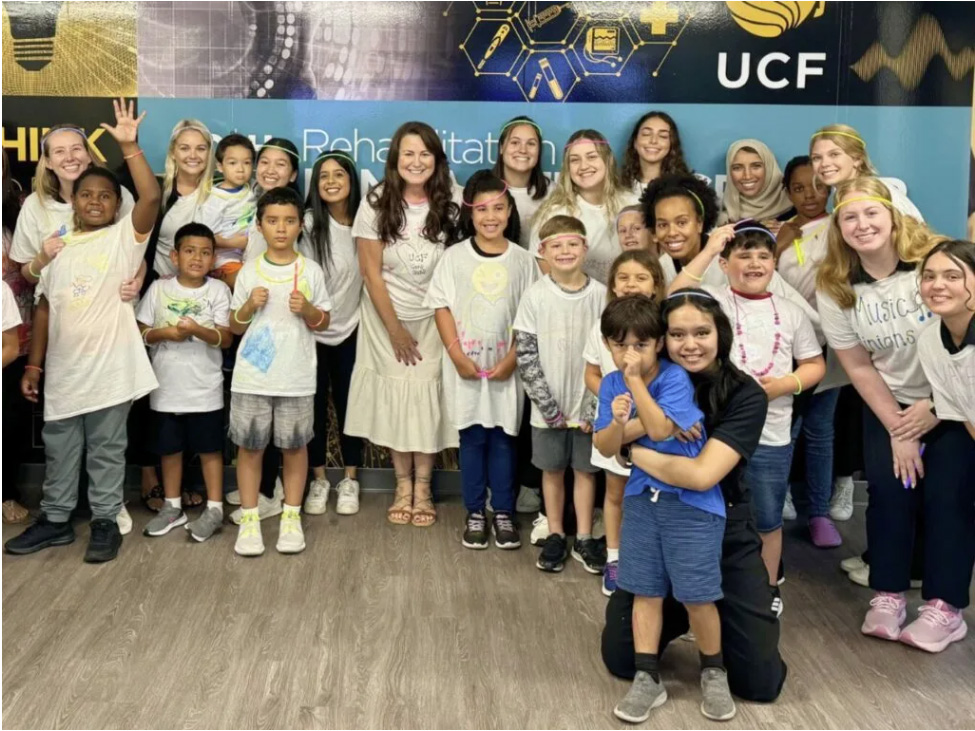Dressed in the uniform of a UCF communication sciences and disorders graduate student, Gerlinde Taghon and Celien Volckaert of Belgium appear to fit right in with the other students enrolled in UCF’s Fluency Disorders course this spring. And they really do fit in thanks the welcoming efforts of Martine Vanryckeghem, professor of communication sciences and disorders at UCF, and a formal agreement between UCF and VIVES University College in Flanders, Belgium.
Taghon and Volckaert, both students at VIVES, are the first students to participate in a six-week externship made possible by the international agreement. Vanryckeghem said she created the externship as an opportunity for speech-language pathology students from UCF and VIVES “to spread their wings and expand their horizons across the Atlantic.”
| In Belgium, undergraduate speech-language pathology students immediately begin their major course work, having completed college-level general education courses in secondary school. When they complete the three-year undergraduate program, they’re eligible to work as speech-language pathologists. |
The Belgian students came to UCF in late January and were quickly “embraced” by UCF graduate students in communication sciences and disorders, Vanryckeghem said. “From the very first moment, they were not only accepted in the class group, they became absorbed in our current student cohort.”
“They call us the Belgian waffles,” Taghon shared in well-spoken English, along with a smile, “because waffles are so well known in Belgium.”
She and Volckaert have kept a very busy schedule during their visit. In addition to taking Fluency Disorders, taught by Vanryckeghem, the Belgian students are juggling course assignments from both UCF and VIVES and spending time at the Communications Disorders Clinic, run by the Department of Communication Sciences and Disorders.
The clinic is the largest teaching facility for speech-language pathology students in the United States and offers an unparalleled opportunity to work with different types of clients in a single setting.
The Belgian students are working with clients in specialty services in aphasia, stuttering, audiology, listening, and augmentative and alternative communication under the supervision of faculty clinicians. They’re also attending client group meetings and outings that encourage the clients to speak.
Volckaert said it’s been good to learn the theory in the classroom and then see it in practice. “We’ve learned a lot,” she said.
Vanryckeghem thinks the UCF students and clients are benefitting from the externship too.
“The two VIVES students have sparked an interest in the world beyond UCF and the USA among our students,” she said. “My clients get to talk to them and ask them questions about their country. It’s a great opportunity in terms of training their communication skills.”
Taghorn said the externship has been a lot of hard work. But both she and Volckaert said they will recommend the experience to other VIVES students and already know of some students who have expressed an interest. “We like the campus,” Taghon said. “We like the atmosphere — it’s cozy and friendly.” “It’s like a little city,” Volckaert added.
On the weekends, Vanryckeghem has taken the Belgian students on excursions in Winter Park, Orlando and St. Augustine. When the students leave UCF in early March, they’ll head to New York City for a visit before returning home.
Vanryckeghem said she’s hopeful the UCF-VIVES agreement will lead to a mutual exchange of students in the future.
